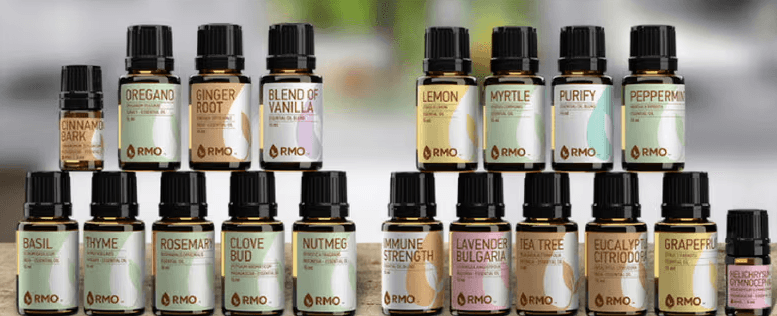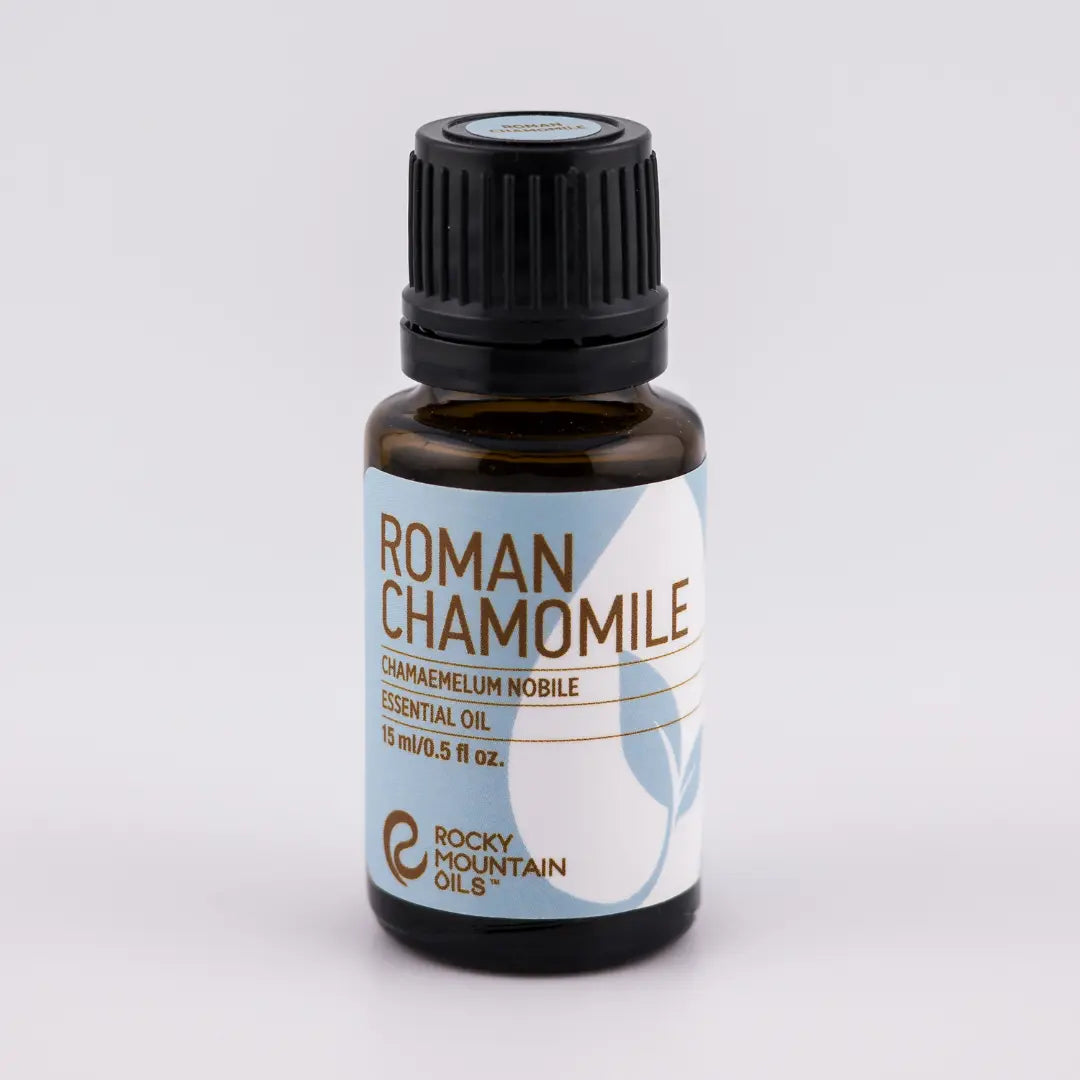What Essential Oil is Good for Sunburn? Best Essential Oils for Sunburn Relief
Sunburn, an uncomfortable and often painful skin condition, can dampen the joys of sunny days. Essential oils, with their natural healing properties, offer a gentle yet effective way to soothe and repair sunburnt skin. In this article, we'll explore the various essential oils that can provide relief from sunburn, discussing their unique benefits and application methods to ensure safe and effective healing.

The Science Behind Essential Oils and Skin Repair
How Essential Oils Work on Sunburnt Skin
Essential oils are a gift from nature, packed with compounds beneficial for skin repair and soothing sunburn. When applied to sunburnt skin, these oils work by penetrating the epidermis, offering much-needed relief. They help to reduce inflammation, cool the skin, and promote faster healing of damaged skin cells. The natural antiseptic properties in many essential oils also aid in preventing infection in the damaged areas.
The Role of Natural Compounds in Sunburn Relief
The magic of essential oils in sunburn relief lies in their natural compounds. Terpenes, for instance, are known for their anti-inflammatory properties, which allow them to lessen the redness and swelling associated with sunburn. Esters found in some essential oils can provide a soothing effect, easing the pain and discomfort of sunburn. Phenols, another group of compounds, have antiseptic properties that protect sunburnt skin from infection and promote faster healing.
Top Essential Oils for Sunburn
Lavender Oil: A Soothing and Healing Choice
Lavender oil is well-known for its relaxing and soothing properties, making it a perfect option for treating sunburn. Its anti-inflammatory properties help to lessen the redness and swelling associated with sunburn, while its analgesic properties can alleviate pain. Lavender oil also supports the regeneration of skin cells, speeding up the healing process.
Tea Tree Oil: Antiseptic and Anti-inflammatory Benefits
Tea tree oil is a powerhouse when it comes to treating sunburn. Its strong antiseptic properties help prevent infection in damaged skin, which is crucial for sunburnt areas. Additionally, its anti-inflammatory effects help reduce the discomfort and swelling that often accompany sunburns.
Chamomile Oil: Gentle Relief for Sensitive Skin
Chamomile oil is especially suited for those with sensitive skin. It provides gentle relief from the sting of sunburn. Its anti-inflammatory properties help in lessening redness and irritation, making it a comforting choice for sunburn relief.
Peppermint Oil: Cooling Sensation for Burn Relief
The cooling effect of peppermint oil is a natural remedy for the heat and discomfort of sunburn. It provides immediate relief from the burning sensation and helps to soothe the skin. Its menthol content also helps in reducing inflammation and discomfort.
Aloe Vera Oil: Hydrating and Healing Properties
Aloe vera is widely recognized for its skin-healing properties, and the oil extracted from it is no different. Rich in vitamins and minerals, aloe vera oil profoundly hydrates the skin, which is essential for healing sunburn. It also promotes cell regeneration, helping the skin to heal more quickly and effectively.
Application Techniques
Safe Dilution and Application of Essential Oils
When treating sunburn, it's crucial to dilute essential oils with carrier oil before putting them on the skin. This practice ensures the safety of the skin and improves the absorption of essential oils. A commonly recommended ratio is one to two drops of essential oil per teaspoon of carrier oil.
Combining Essential Oils with Carrier Oils for Sunburn
Using carrier oils like coconut, almond, or jojoba oil can improve the benefits of essential oils for sunburn. These carrier oils have their own soothing and hydrating properties, which, when combined with essential oils, provide a more comprehensive treatment for sunburn.
Do's and Don'ts of Applying Essential Oils on Sunburnt Skin
Apply essential oils gently, using a soft dabbing motion rather than rubbing, to avoid further irritating the skin. Don't apply essential oils directly to open wounds or severely blistered skin. It's also important to avoid sun exposure after applying photosensitive oils like bergamot or lemon.
Precautions and Safety Tips
Understanding Skin Types and Allergic Reactions
Prior to utilizing essential oils, it's crucial to ascertain your skin type and perform a patch test to confirm you have no allergies to the oil. This entails applying a diluted small quantity of essential oil to an inconspicuous skin area and waiting for 24 hours to inspect for any potential adverse reactions.
When to Seek Medical Advice for Sunburn
While essential oils can provide relief for mild to moderate sunburn, they are not a substitute for professional medical advice. If you experience severe sunburn with extensive blistering, fever, or chills, it's crucial to seek medical attention.
Alternative Remedies and Complementary Therapies
Herbal Remedies and Their Role in Sunburn Treatment
In addition to essential oils, various herbal remedies can soothe sunburn. For instance, applying a green tea compress can reduce inflammation and help heal the skin, thanks to the tea's antioxidant properties.
The Importance of Hydration and Nutrition in Skin Healing
Maintaining internal hydration and proper nutrition is crucial for the skin's healing process. Staying well-hydrated by drinking ample water and following a balanced diet that includes antioxidants and vitamins can significantly boost the body's capacity to heal sunburned skin.

Which essential oils are best for sunburn?
When it comes to soothing sunburned skin, several essential oils can offer relief and aid in the healing process. Lavender oil is a top choice due to its anti-inflammatory and analgesic properties, which can help reduce redness, pain, and inflammation associated with sunburn.
Aloe vera essential oil is another excellent option, as it complements the natural healing properties of aloe vera itself, known for its cooling and moisturizing effects on damaged skin. Chamomile essential oil, with its anti-inflammatory and calming characteristics, can also provide relief from sunburn discomfort.
Additionally, tea tree oil's antimicrobial properties can help prevent infection in sunburned areas. These essential oils should be diluted with a carrier oil, such as coconut or jojoba oil, before applying them gently to the affected skin for a soothing and healing effect.
What essential oils are good for sun damage?
Several essential oils can be beneficial for addressing sun damage to the skin. Lavender essential oil is known for its soothing properties and can help reduce redness and inflammation caused by sunburn. Frankincense essential oil promotes skin regeneration and may aid in healing sun-damaged skin. Helichrysum essential oil is prized for its ability to diminish the appearance of scars and can be useful in fading sunspots.
Additionally, tea tree oil possesses antimicrobial properties that can prevent infection in sunburned areas. However, it's crucial to dilute these essential oils with a carrier oil like coconut or jojoba oil to avoid skin irritation and always perform a patch test before widespread use. While these oils may provide relief and support in managing sun damage, it's essential to practice sun safety by wearing sunscreen and protective clothing to prevent future harm from UV radiation.
Is it OK to put oil on a sunburn?
It is generally not recommended to put oil on a sunburn. While some oils like coconut oil or aloe vera may offer temporary relief by moisturizing the skin and reducing dryness associated with sunburn, oils can also trap heat and worsen the burn. It's crucial to prioritize cooling and soothing measures instead, such as applying aloe vera gel, taking cool baths, using over-the-counter pain relievers, and staying hydrated to help the skin heal and minimize discomfort.
If the sunburn is severe, it's advisable to seek medical attention as excessive oil or creams can exacerbate the condition and delay the healing process. Sunscreen and protective clothing are the best preventive measures against sunburn in the first place.
Frequently Asked Questions (FAQs)
Can Essential Oils Cure Severe Sunburn?
Essential oils can help in the healing of mild to moderate sunburns but are not a cure for severe burns.
How Often Should I Apply Essential Oils for Sunburn Relief?
Essential oils can be applied 2-3 times a day, depending on the severity of the sunburn and the skin's response.
Are There Any Age Restrictions for Using Essential Oils on Sunburn?
It is advisable to use essential oils cautiously on children and consult a pediatrician before application.
Are Essential Oils Safe for Use on the Face?
Yes, many essential oils are safe for use on the face when appropriately diluted with a carrier oil. However, it's necessary to be cautious and perform a patch test first, as the facial skin is more sensitive than other parts of the body.
Can I Mix Different Essential Oils for Sunburn Treatment?
Indeed, it's possible to blend various essential oils to craft a customized remedy for your particular sunburn treatment requirements. For instance, a combination of soothing lavender oil and cooling peppermint oil can prove effective. Nonetheless, it's essential to thoroughly research and comprehend the properties of each oil before attempting any mixing.
Should Essential Oils Be Washed Off After Application?
It's not necessary to wash off essential oils after application as they are meant to be absorbed into the skin. However, if you experience any discomfort or skin reaction, it's best to remove the oil gently with a mild soap and water.
Conclusion
What Essential Oil is Good for Sunburn? Essential oils offer a natural and effective solution for soothing and treating sunburned skin. By understanding the properties of these oils and how to use them, individuals can confidently incorporate them into their sunburn care routine, tapping into the healing benefits of nature.




